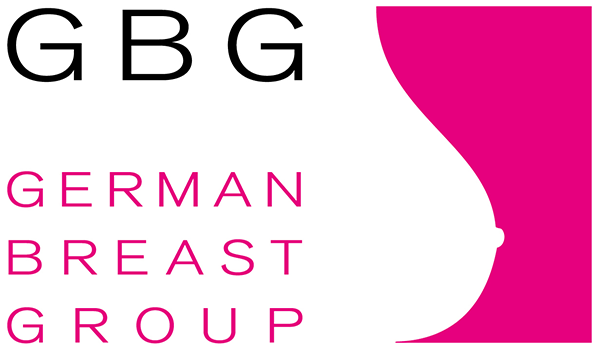
A randomized phase II trial to assess the efficacy of paclitaxel and olaparib in comparison to paclitaxel / carboplatin followed by epirubicin/cyclophosphamide as neoadjuvant chemotherapy in patients with HER2-negative early breast cancer with Homologous Recombinant Deficiency (HRD) (HRD patients with deleterious BRCA1/2 tumor or germline mutation and/or HRD score high) (GeparOLA)
EudraCT-Number 2015-003509-41
Introduction
Rationale:
- Based on data from the GeparSixto and CALBG 40603 study
- All TNBC patients benefit from chemotherapy with carboplatin and particularly high pCR rates can be achieved in patients with HRD.
- This particularly chemosensitive subgroup (around 70% of all triple-negative patients are homologous recombinant deficient), extended by the group of HRD-sensitive HRpos patients, is then intended for inclusion in the GeparOLA study
- pCR rates were even higher in patients with germline BRCA 1 or 2 mutations (ypT0/is ypN0 65%) and with HRD score high (ypT0/is ypN0 63%)
- The GeparOLA study aims to support the decision for a phase III study exploring the addition of olaparib to targeted therapy
- The efficacy and safety of olaparib included in a standard of care regimen like EC→Pw is unknown
- There is a high correlation between tumor and germline BRCA 1/2 mutations
- 67% of TNBC patients have a high HRD score and 30% have a tBRCA mutation
- About 5% of tBRCA patients have a low HRD score
- gBRCA2 patients are older when diagnosed and are more likely to have an HRpos tumor.
News
Study status: de-registered
Design
This is a multicenter, prospective, randomized, open-label phase II study evaluating the efficacy and safety of PO→EC as neoadjuvant treatment of operable and locally advanced breast cancer in patients with HR deficiency.

The inclusion and exclusion criteria, as well as more detailed information on the study design, can be found in the short protocol on the list of documents.
Contact
Dr. Ioannis Gkantiragas
